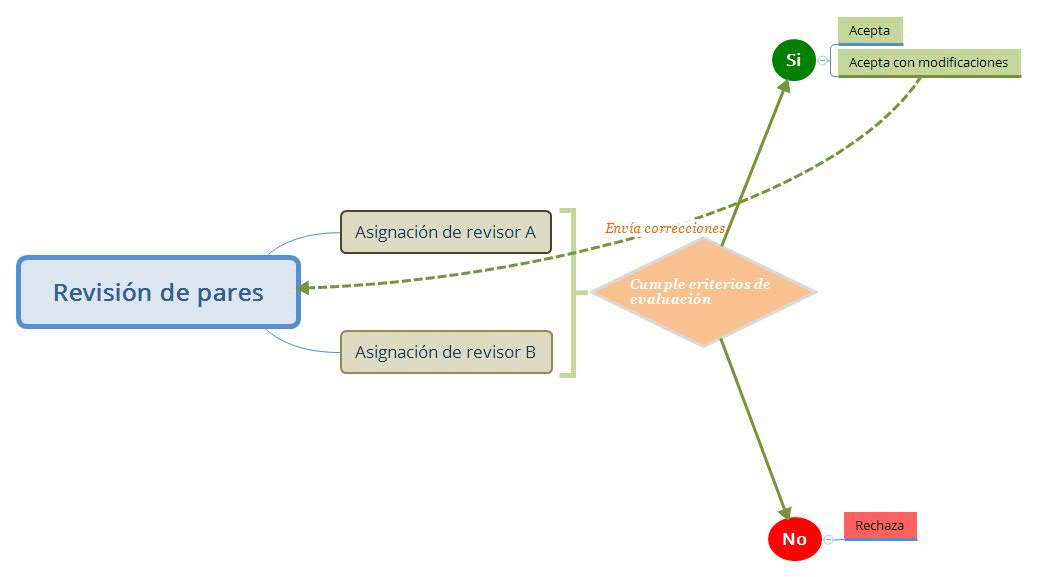Peer review
Peer review process (double-blind review)

593 Digital Publisher CEIT, is a peer-reviewed journal that uses the external evaluation system by experts (peer-review), under the double-blind review methodology, following the American Psychological Association (APA). Compliance with this system allows authors to guarantee an objective, impartial, and transparent review process, facilitating their inclusion in databases, repositories, and international reference indexes for publication.
All manuscripts must be submitted through the Open Journal System (OJS), which guarantees the electronic and auditable record of interactions between the publication and the authors. Once consigned, the Board of Editors checks that the originals comply with the objective and scope of the journal, as well as the authors' standards.
Texts that go through the first revision continue with the editorial process. All manuscripts are reviewed by the arbitration system of "anonymous double pair" (Double-blind peer-review), experts on the subject who do not belong to the authors' institution. This process guarantees the anonymization of documents, authors, and reviewers, certifying the transparency, objectivity, and impartiality of the review process. The review report and scale used by external reviewers for documentary studies can be consulted here; for empirical studies, it can be consulted here.
The entire review process depends on the type of document and level of complexity. From the moment the manuscripts are submitted through the OJS until the completion of the reviews, it takes an average time of 3-8 weeks, except for incidents. Reviewers, in turn, must also adhere to reviewer standards and the reviewer's code of ethics.
Once the opinions of the external reviewers have been obtained, the decision may be:
Accepted: In which case, we will proceed to the mock-up and publication of the article for the next issue. Two positive opinions will be required to approve the publication of any original.
Accepted with minor changes: The authors will be notified of the changes proposed by the reviewers, sending them the completed review protocol (see the model for theoretical) (see the model for empiricists). In this case, the reviewers will have a maximum of 7 continuous days to submit the manuscript with the requested changes.
Accepted with significant changes: Authors will be notified of the changes proposed by the reviewers, sending them the completed review protocol (see the model for studies) and (see the model for research). In this case, the reviewers will have a maximum of 7 continuous days to submit the manuscript with the requested changes and start the review process in another round.
Rejected: In which case, the authors will be informed in a motivated manner, stating the reasons for the rejection and the completed review protocol (see the model for studies) (see the model for research). Authors may always exercise their right to claim in writing to the journal's Editors' Council.
If necessary conditions are established to the evaluated text, the Editorial Committee will request that a comparison be made of the level of incorporation carried out by the author in the second version of the original. To facilitate this task, the author must submit to the Editorial Committee a reasoned official letter stating which points of the opinion he/she took up and which he/she omitted.
If, in the opinion of the Editorial Committee, it is not satisfactory, a new one will be requested.
If there is a disparity between the opinions of the reviewers, a third reviewer will be sent to resolve the difference. On the thought of this third reviewer, there will be no claim.
